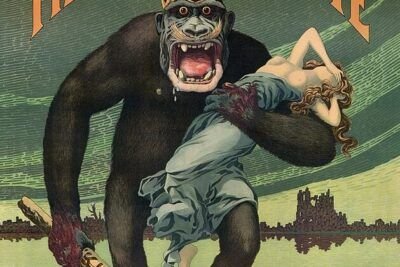
The Controversial Stand: Were They For or Against Lutheranism?

During the 16th century, the Protestant Reformation brought about major changes in the religious landscape of Europe. One of the key figures of this movement was Martin Luther, a German theologian and priest who challenged the teachings and practices of the Roman Catholic Church. Luther's ideas sparked a wave of religious dissent and led to the formation of new Protestant churches. However, not everyone was in agreement with Luther's views, and a number of prominent figures took a controversial stand either for or against Lutheranism.
In this article, we will explore the different perspectives of influential individuals who found themselves at odds with Luther's ideas. We will delve into the arguments and motivations behind their positions, examining the theological, political, and social factors that shaped their stance. By shedding light on these divergent viewpoints, we aim to provide a comprehensive understanding of the complexities surrounding the Protestant Reformation and its impact on European society.
Index
Role of Key Figures in the Controversy: Lutherans vs Opponents
Throughout the history of Lutheranism, there have been significant figures who have played a crucial role in shaping the controversial stance towards this religious movement. These key figures have expressed their opinions either in favor of or against Lutheranism, leading to heated debates and conflicts.
One prominent figure who stood firmly against Lutheranism was Johann Eck, a Catholic theologian and opponent of Martin Luther. Eck engaged in a series of debates with Luther, vehemently defending the Catholic Church and its teachings. He argued against Luther's ideas, particularly on the doctrine of justification by faith alone, and actively worked to counter the spread of Lutheranism.
On the other hand, Philipp Melanchthon, a close associate of Martin Luther, played a crucial role in promoting and defending Lutheranism. Melanchthon was a humanist scholar who became an influential theologian in his own right. He was instrumental in formulating the Augsburg Confession, a key Lutheran document that outlined the beliefs and practices of the movement.
Another figure who took a strong stance in favor of Lutheranism was Frederick the Wise, the Elector of Saxony. Frederick protected Luther from being arrested and condemned by the Catholic Church, providing him with a safe haven at Wartburg Castle. He also supported the spread of Lutheranism in his territory and played a pivotal role in the establishment of the Protestant Reformation.
It is important to note that while some key figures were against Lutheranism, others were staunch supporters. Their differing opinions and actions contributed to the controversy surrounding Lutheranism and shaped the course of religious history.
Arguments For and Against Lutheranism: A Detailed Analysis
Throughout history, there have been individuals and groups who have taken a stand either for or against Lutheranism. This religious movement, which was initiated by Martin Luther in the 16th century, brought about significant changes in the Christian faith and challenged the authority of the Catholic Church.
Those who were in favor of Lutheranism saw it as a necessary reform that aimed to bring the Church back to its biblical roots. They believed that the Catholic Church had become corrupt and had strayed from the teachings of the Bible. Lutheranism, with its emphasis on faith and grace, offered a refreshing alternative to the rigid hierarchical structure of the Catholic Church.
Supporters of Lutheranism argued that the Church needed to be more accessible to the common people. They believed that individuals should have direct access to the Word of God, rather than relying solely on the interpretations and teachings of the clergy. Lutheranism promoted the idea of a personal relationship with God, encouraging believers to read and interpret the Bible for themselves.
On the other hand, there were those who vehemently opposed Lutheranism. They viewed it as a dangerous heresy that threatened the unity and authority of the Church. These opponents believed that Lutheranism undermined the sacraments and rituals that were central to the Catholic faith. They feared that the individualistic approach of Lutheranism would lead to theological chaos and divisions within the Church.
The opponents of Lutheranism saw it as a threat to the established social order. They believed that the Catholic Church played a crucial role in maintaining stability and hierarchy in society. Lutheranism challenged the authority of the Pope and the clergy, which was seen as a direct challenge to the entire social and political structure of the time.
In conclusion, the debate over Lutheranism was a contentious one, with strong arguments on both sides. Supporters saw it as a necessary reform that would bring the Church back to its biblical foundations and promote individual faith. Opponents, however, saw it as a dangerous heresy that threatened the unity and authority of the Church. The controversy surrounding Lutheranism ultimately led to significant religious and social changes in Europe.
Key Takeaways:
- Supporters of Lutheranism believed it was a necessary reform to bring the Church back to its biblical roots.
- They argued for a more accessible and personal approach to faith, with direct access to the Word of God.
- Opponents saw Lutheranism as a heresy that threatened the unity and authority of the Catholic Church.
- They feared the individualistic approach of Lutheranism would lead to theological chaos and divisions.
- Lutheranism challenged the established social order and the authority of the Pope and clergy.
Historical Context: Understanding the Controversial Stand
The Protestant Reformation, led by Martin Luther in the 16th century, brought about significant religious and social changes in Europe. Lutheranism, a branch of Protestantism, emerged as a response to the corruption and abuse within the Catholic Church. This new movement challenged the authority and teachings of the Catholic Church, sparking debates and controversies among religious leaders, intellectuals, and ordinary people.
Many individuals and groups had differing views on Lutheranism, with some supporting its ideas and others vehemently opposing them. The controversy surrounding Lutheranism stemmed from theological, political, and social factors, making it a complex and multifaceted issue.
On one hand, there were those who were for Lutheranism. They believed in the need for reform within the Catholic Church and saw Luther's teachings as a way to return to the true essence of Christianity. These individuals admired Luther's courage in challenging the authority of the Pope and his emphasis on faith and individual interpretation of the Bible.
Supporters of Lutheranism were drawn to the idea of salvation by faith alone, rejecting the Catholic Church's emphasis on good works and sacraments. They saw Luther's emphasis on grace and God's mercy as a liberating concept, offering a direct and personal relationship with God.
Additionally, Lutheranism appealed to those who were disillusioned with the Catholic Church's hierarchy and practice of selling indulgences. Luther's call for a more simplified and accessible form of worship resonated with those who felt disconnected from the elaborate rituals and traditions of Catholicism.
On the other hand, there were those who were against Lutheranism. These individuals, including many Catholic leaders and intellectuals, saw Luther's teachings as heretical and dangerous. They feared that Lutheranism would lead to a fragmentation of the Church and the erosion of its authority.
Opponents of Lutheranism believed in the necessity of a centralized and hierarchical institution like the Catholic Church to maintain order and unity among believers. They saw Luther's emphasis on individual interpretation of the Bible as a threat to the Church's authority and the stability of society.
Furthermore, opponents of Lutheranism viewed the movement as a catalyst for social unrest and political instability. They feared that the rejection of traditional Catholic practices and beliefs would lead to widespread chaos and a breakdown of social order.
The controversy surrounding Lutheranism was not limited to theological and political debates. It also had significant social and cultural implications. The movement challenged long-standing traditions and practices, causing divisions within families and communities.
In conclusion, the controversy surrounding Lutheranism during the Protestant Reformation was characterized by differing opinions and perspectives. While some individuals and groups supported Luther's teachings and saw them as a means of reforming the Catholic Church, others vehemently opposed them, fearing the consequences of such a radical departure from tradition. The controversy surrounding Lutheranism reflects the complex and transformative nature of the Reformation period.
Impact of the Controversy: Shaping the Future of Religion
The controversy surrounding Lutheranism had a profound impact on the future of religion. It sparked debates and discussions that shaped the course of history and influenced the beliefs and practices of many individuals.
Those who were for Lutheranism saw it as a necessary reform of the corrupt practices and teachings within the Catholic Church. They believed in the importance of faith and the direct relationship between individuals and God, without the need for intermediaries such as priests. They were drawn to Luther's emphasis on the Bible as the ultimate authority and his rejection of certain Catholic doctrines, such as indulgences.
On the other hand, those who were against Lutheranism viewed it as a dangerous heresy that threatened the unity and authority of the Catholic Church. They feared that Luther's ideas would lead to a fragmentation of Christianity and the loss of traditional practices and beliefs. They saw Luther as a rebel who challenged the established order and undermined the authority of the Pope and the Church hierarchy.
During this time, Lutheranism became a divisive issue, with supporters and opponents engaging in heated debates and sometimes even violent conflicts. It led to the formation of new religious sects and the establishment of Protestant churches that challenged the dominance of Catholicism.
While Lutheranism gained many followers, it also faced opposition from powerful political and religious leaders who sought to suppress its teachings. The controversy surrounding Lutheranism continued to shape the religious landscape for centuries, leading to the development of other Protestant denominations and the eventual splintering of Christianity.
It is interesting to note that the controversy surrounding Lutheranism not only had religious implications but also political and social ones. The Reformation sparked a wave of political and social unrest, as individuals and nations grappled with the changes brought about by the new religious ideas. This period marked a significant shift in power dynamics and the questioning of long-held beliefs and traditions.
Frequently Asked Questions
1. Were the controversial figures in favor of Lutheranism?
It is unclear where the controversial figures stood on Lutheranism as their views varied and evolved over time.
2. Did the controversial figures openly oppose Lutheranism?
Some of the controversial figures did openly oppose Lutheranism, while others remained silent or expressed ambivalent views.
3. Were there any controversial figures who later embraced Lutheranism?
Yes, there were a few controversial figures who initially opposed Lutheranism but later converted to the movement.
4. How did the controversy surrounding Lutheranism impact the broader religious landscape?
The controversy surrounding Lutheranism led to divisions within the Church and sparked debates that ultimately reshaped religious practices and beliefs in Europe.
 Debunking the Myth: Does Yogurt Make You Gain Weight?
Debunking the Myth: Does Yogurt Make You Gain Weight? Exploring Polyamory: Pros and Cons of Multiple Relationships and Boundaries
Exploring Polyamory: Pros and Cons of Multiple Relationships and BoundariesSi leer artículos parecidos a The Controversial Stand: Were They For or Against Lutheranism? puedes ver la categoría Society and Lifestyle.






Leave a Reply